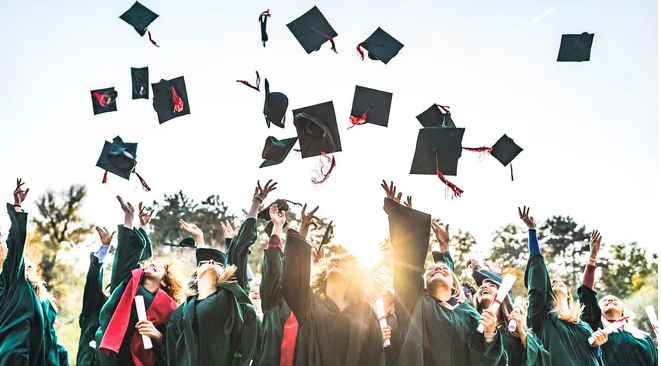 By Ryan O’Dowd: Local Journalism Initiative Reporter
By Ryan O’Dowd: Local Journalism Initiative Reporter
November 26th, 2021
BURLINGTON, ON
In March 2020 high school halls across Burlington looked surreal. The last day of school is often a celebration. Emptying exam rooms are littered with crumpled cheat sheets, short-hand notes for lessons already forgotten, while laughter echoes through the halls. Kids slam their faded blue locker doors and storm from the building, headed for long summers that for them seem short.
In March 2020, there was no such exodus. One day they were there, the next they were gone, it was like a vanishing act.
What followed was an on-the-fly rethinking of how high school education could be handled from a distance. Confusion, isolation, lack of motivation, lost friends, and missed events followed.
I spoke to Burlington high school students to get their take on the educational and social ramifications of education during COVID-19.
Many Burlington students reported in the immediate aftermath of March 2020 lockdowns, on how high schools operated with grade freezes and asynchronous learning.
The grade freeze meant whatever mark a student entered COVID-19 with in the spring semester of 2020 couldn’t go down. Asynchronous learning means students were given access to pre-recorded lectures, assignments, or notes and asked to go through the material independently. Some students didn’t even speak to teachers for the remainder of the 2020 spring term.
Matthew, a grade 10 student at Notre Dame High School, completed grade 9 under those difficult circumstances. He noted the grade freeze coupled with the asynchronous approach made it difficult for many students to find motivation. For his part, Matthew completed his work, determined not to be behind when things got back to normal.
When school resumed in September of 2020, and it was clear the pandemic was going nowhere, the students and teachers had a more open dialogue.
“When we started back up some teachers kind of opened up about how hard it had been for them to teach online. And they kind of understood where we were at; that we were kind of losing our entire high school experience, that things kind of suck,” said Matthew. “They made us feel like we’re not alone, we’re all in the same boat, we’re all going through the same thing.”
A grade 10 Burlington student, Sam, also found it difficult to focus, and the lack of in-person communication with his teachers made it hard to get help from them when required.
“They made us feel like we’re not alone, we’re all in the same boat, we’re all going through the same thing.”
“Returning to the classroom was way better. I was happier, less stressed. I was able to do my work. Online I’d get behind and not be able to catch up,” said Sam.
Sam talked about getting to see his friends in-person, not just over a screen. The loss of social activities was echoed by every student who spoke to the Gazette.
Matthew talked about the social elements of school and how they motivated him educationally. Matthew was involved in several arts through ballet, theatre, and piano, and struggled when the structure of his routine was taken away.
“I lost quite a lot. I just lost every sort of outlet, it felt empty. But I tried doing more stuff, the theater companies I worked with were doing online classes but that just didn’t feel the same because you couldn’t really interact with anyone on Zoom. It was just kind of awkward,” said Matthew.
The pandemic impacted students at all different stages of learning, for Matthew and Sam their high school careers were turned upside down early on. Other students, like Stephanie, now in post-secondary school, who was in grade 12 in March 2020 lost the ending of their time in high school.

“I was really upset when I learned that not only the prom wasn’t happening anymore, but graduation wasn’t happening either. I didn’t even get graduation online. I was so excited that I made it on the honor roll, and I got these achievements from school that I couldn’t even really show off to my family,” said Stephanie.
“I was really upset when I learned that not only the prom wasn’t happening anymore, but graduation wasn’t happening either.
Perhaps too much pressure is placed on moments like prom and high school graduation to be defining for young people but they surely are for some. Those of us who lived them will probably say they weren’t as big a deal as the movies made them out. Most proms are stilted affairs defined by awkward flirtation and decisions that would make you cringe as an adult, memories that might creep up on you like an uncomfortable itch. Graduations are rarely American Graffiti, instead students conglomerate to sit overdressed and overheating for an overlong affair while names are called to receive a diploma you’ll bury somewhere and never look at again.
But the class of 2020 will live on as the group who never got to find that out the hard way. Instead, it exists as a tantalizing “what if?” Stephanie reflected on losing those potentially pivotal moments and worse still a growing distance among friends.
“My friends and I missed out on a lot in our senior year, and maybe it was just because we went our separate ways after high school, but I do blame the pandemic a bit for the reason my friends and I lost touch,” said Stephanie.
Stephanie reflected on how her experience with education during the pandemic influenced her decision to go onto post-secondary school knowing the socially distanced format would, for a time, carry on.
“I was so used to being away from the classroom environment that I think I went back into my introverted habits. I liked to be alone and I think I even ended up liking the idea of getting my college degree online. I think if I wasn’t so used to doing online school I would have preferred to be in a physical college class.
I think there are some positive and negative aspects to doing online college courses, for me at least. I live two hours away from my college so I’m happy I’m able to learn online, but at the same time, I’ll never be able to form great friendships with my classmates or my professors.”
Other students who spoke to the Gazette echoed similar concerns, a lack of connection and confusion occupied the forefront of young people’s experiences.
Young people have been susceptible to education struggles and increases in anxiety and depression throughout the pandemic and it’s not hard to see why from the first hand accounts of their learning experiences. The academic and social elements lost may be irreplaceable. These students are members of the first generation who will have little to no memory of a world without smartphones, they have to contend with access to often-toxic social media since their childhood.
The academic and social elements lost may be irreplaceable.
Concerns existed before the pandemic about a potential deficit in face to face communication, an uptick in isolation, and poor mental health.
These concerns are surely exacerbated by the uneven and lonely experience that was high school during COVID-19.

















